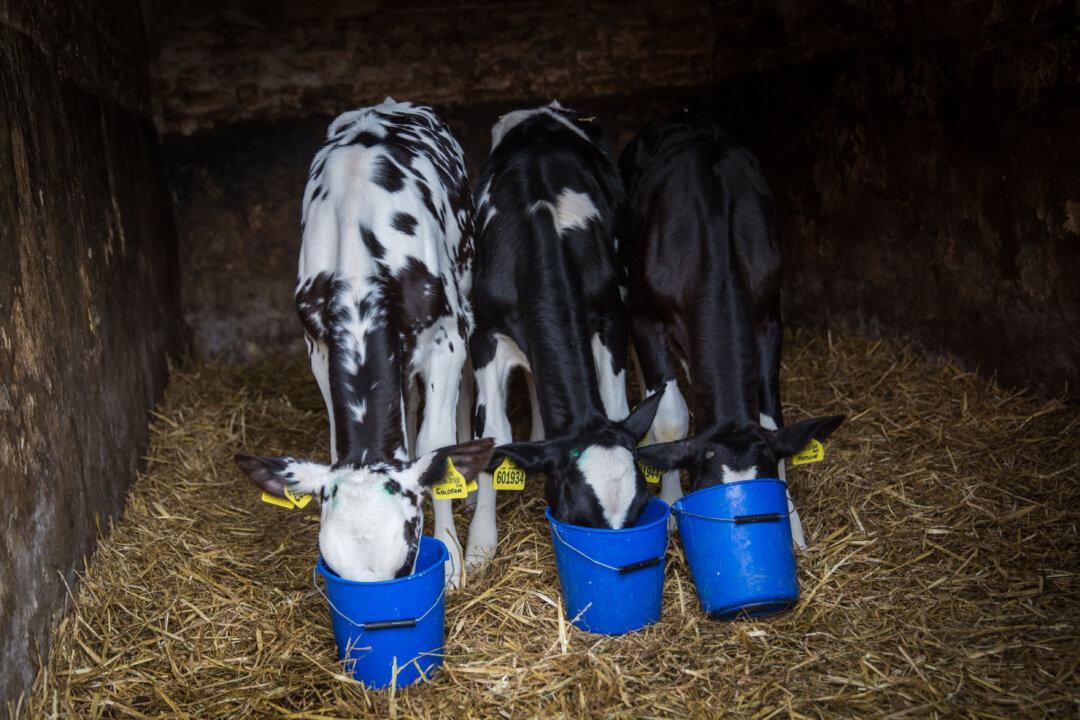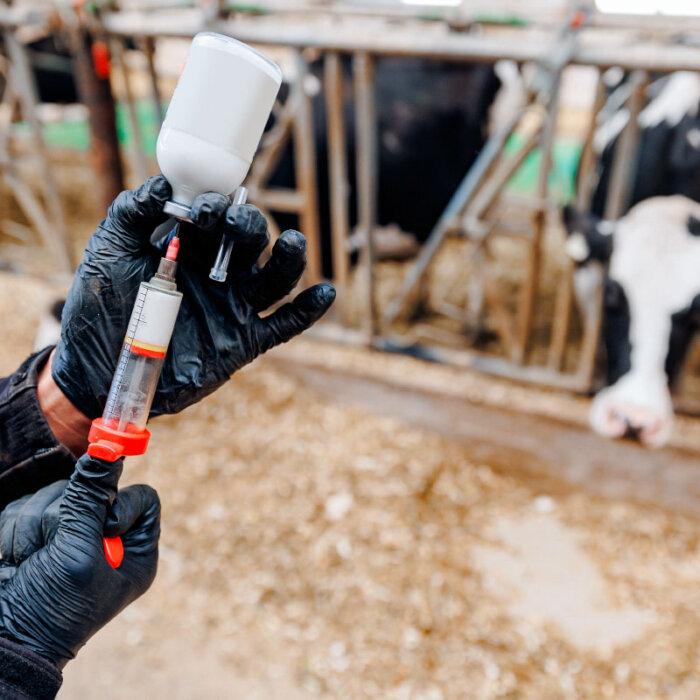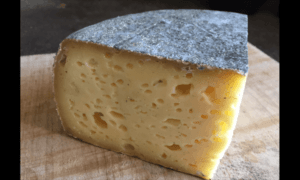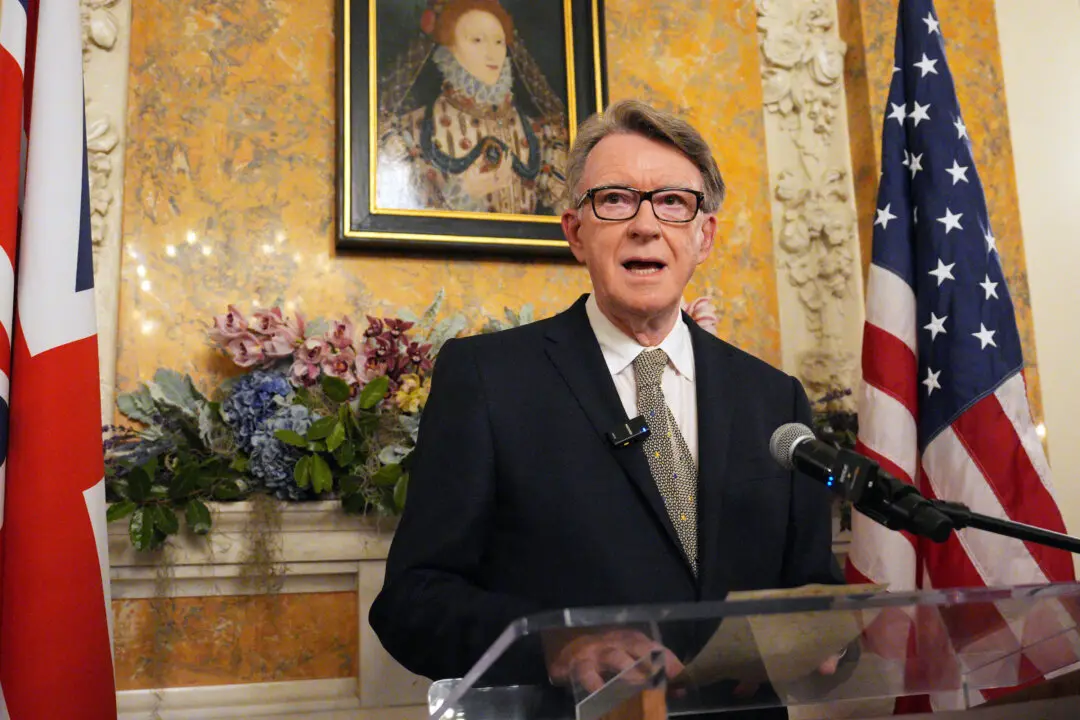Supermarkets are facing a consumer backlash after Europe’s biggest dairy farmer announced it is trialling a synthetic supplement on its cows with the aim of reducing methane in the drive for net zero.
The online protest was swift, with consumers taking to social media to question supermarkets which have partnered with Arla for the trial—including Tesco, Aldi, and Morrisons—about the possible health implications of the supplement, with some threatening to boycott the products and even the stores.
Comments directed at the supermarkets and brands involved in the trial on social media platform X included one that said, “Happy to consume dairy products from smaller, independent farms who are not party to these mad practices.”
‘Potentially Harmful by Inhalation’
Experts at DSM, the company behind Bovaer, have said that it is safe for both animals and consumers, but the UK Food Standards Agency (FSA) issued a report last year that referenced potential dangers of 3-NOP. Despite approving the supplement, the FSA described it as “corrosive to the eyes, a skin irritant, and potentially harmful by inhalation.”The three supermarkets said in a joint statement that the trial is a “great way of testing out where we can drive change at scale to bring down emissions.”
Paul Dover, UK agricultural director at Arla Foods, said: “We know that reducing methane is a big opportunity when it comes to improving our carbon footprint at farm level and feed additives like Bovaer have huge potential in helping us tackle this issue.
“Bringing partners together from across the food and grocery industry in this kind of initiative highlights the support there is for British farmers in transitioning to more sustainable farming methods.”
Gates Funding Rival Product
The Microsoft co-founder is not involved in funding the Arla trial, or Bovaer more widely, but last year invested millions into rival start-up Rumin8, which develops similar additives.Gates has frequently spoken out over the environmental impact of meat production and has provided funding for artificial meat companies, as well as founding his own, Impossible Burger.
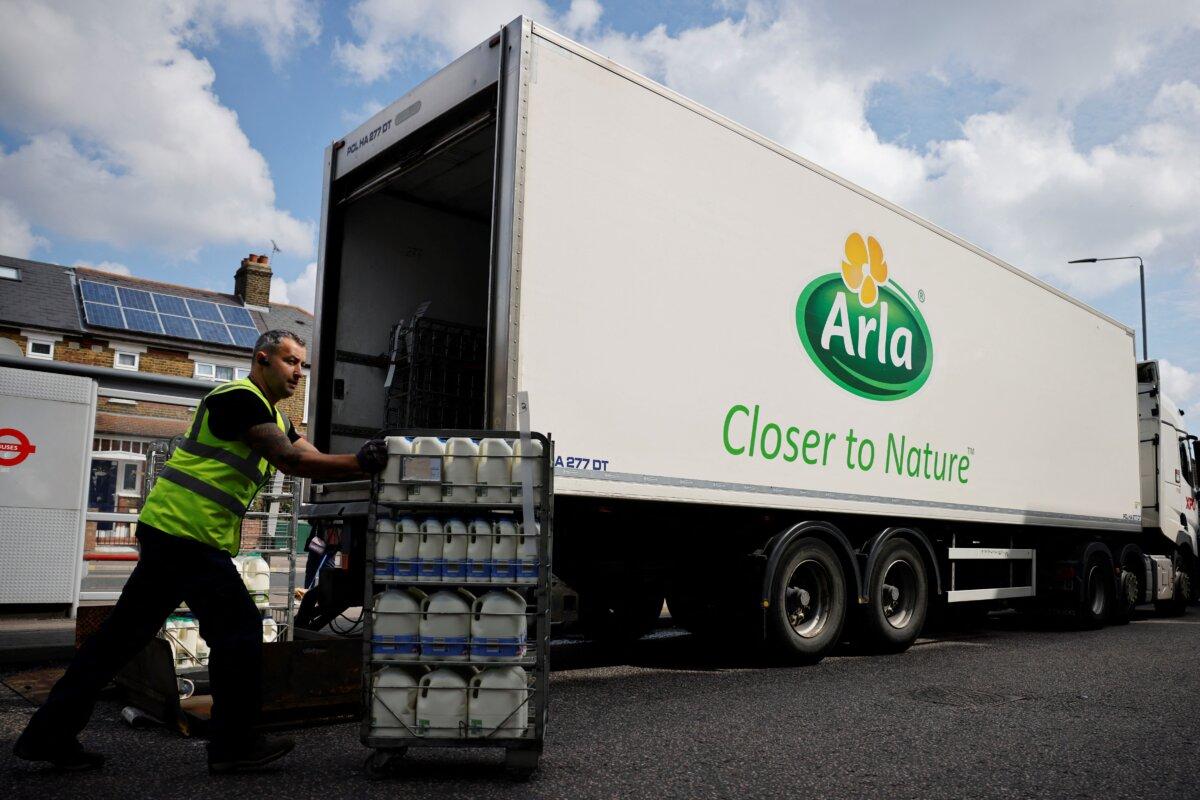
In January 2023, Gates said that cows, who have four stomachs, cause global warming because they “burp and fart methane to an extreme degree.”
Another billionaire, Amazon founder Jeff Bezos, has donated more than £7 million to a project at the Pirbright Institute in Surrey, which aims to develop a vaccine to reduce the amount of methane-producing microbes in the stomachs of cows. Previous attempts to develop such a jab have failed because cows’ microbiomes are different in different parts of the world.
‘No Impact on Milk’
“The information spreading online surrounding our link to Bill Gates is completely false and claims relating to his involvement in our products is inaccurate,” Arla told The Grocer.“Bovaer has already been extensively and safely used across Europe and at no point during the trial will there be any impact on the milk we produce as it does not pass from the cow into the milk,” the spokesperson said.
“Regulatory bodies, such as the European Food Safety Authority (EFSA) and UK Food Standards Agency, have approved its use based on evidence that it does not harm the animals or negatively impact their health, productivity, or the quality of milk.”
Bovaer was authorised in the UK in April and has been approved for use by countries including Australia and Canada, and by the EU.
National Farmers’ Union Dairy Board Chair Paul Tompkins did not rule out the possibility that the supplement could impact animal health, saying, “While FSA-approved products could be useful tools in helping to reduce methane emissions, questions remain about long-term efficacy, that it can be used practically and effectively on farms, and that animal health and welfare will not be impacted.”
He said government research shows shoppers are generally positive about the products as long as human and animal health are not affected.
“It’s critical we also have a strong evidence base to give farmers the confidence to use these products. This trial project between Arla, Morrisons, Aldi, and Tesco could help provide this evidence,” he added.
